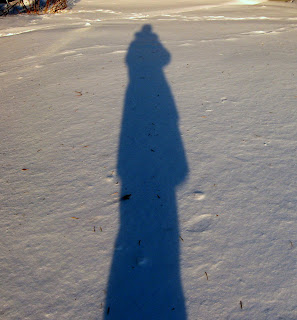
I've decided to give up on my civilization death watch for a while. Much smarter people than me have been describing in agonizing detail the collapse of the financial system, the depletion of oil reserves, the inevitability of climate change and other environmental horrors and the rise of religious fundamentalism. Every newspaper carries page after page of news stories confirming the decline of industrial civilization and the natural world that sustains it. The destruction of the natural world to enrich a small minority of the world's population breaks my heart, but the loss of the system which allows this to be so – not so much.
Most people can figure out that if you have a civilization based on the destruction of the natural world eventually you're going to run out of nature and that's the end of your civilization. This has happened over and over throughout history. The difference today is that our industrial civilization has expanded to include close to 7 billion people, the entire landmass of the planet, all the oceans and even beyond the thin layer of atmosphere to outer space. I'd say we've pretty much run out of nature.
I have no patience for the proponents of “sustainable” anything unless they really mean it. Given that to be truly sustainable we'd have to have about 10 planet Earths at our disposal or a tenth of the population consuming the same or the entire population consuming a tenth of what we're consuming now I don't think most “sustainable development” folks really mean it. I'm also losing patience with the lightbulb changing crowd. You can't argue with efficiency, but these incremental, no standard of living change required changes are insignificant.
I think most people understand the utter uselessness of technological solutions and incremental changes to solve the problem of ecological limits whether consciously or not. A few years ago George W. Bush bought a 98,000 acre ranch in Paraguay– even he knows what's going on. The rest of us intuitively understand that the structural changes required to stop the destruction of our air, water, topsoil, forests and oceans would be countered by state violence. If that sounds extreme, try preventing a uranium mine from going ahead, or stop a piece of farmland from being lost forever to housing. See how long it is before you're talking to a representative of the government who happens to be wearing a kevlar vest and gun. And if you're really serious about protecting that piece of ground, well – you're going to jail or worse. So most people don't even consider it and even disapprove of those who do.
Instead of the death watch, I'm going to try, to the extent possible, to disentangle myself and my family from the worst of civilization while increasing our connections to the natural world and the people in our lives. It won't change a thing, but I'll feel better.
 Over the holidays I had occasion to discuss the state of the world with members of my family. I found it very difficult to contribute to this conversation because of my family's rules of engagement, which I suspect are similar to other people's family rules.
Over the holidays I had occasion to discuss the state of the world with members of my family. I found it very difficult to contribute to this conversation because of my family's rules of engagement, which I suspect are similar to other people's family rules.








